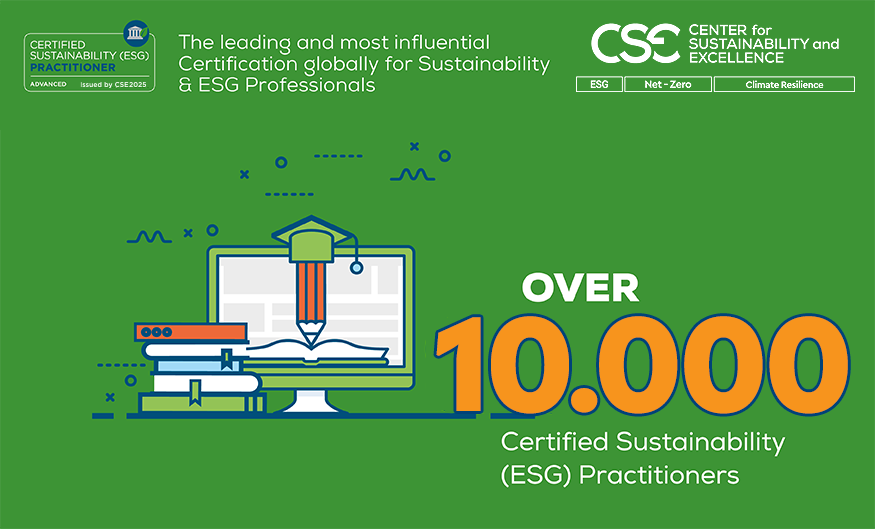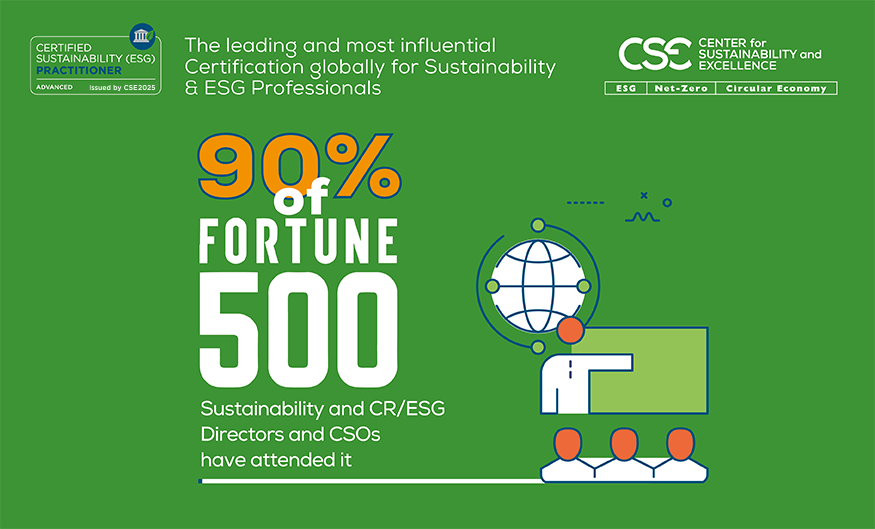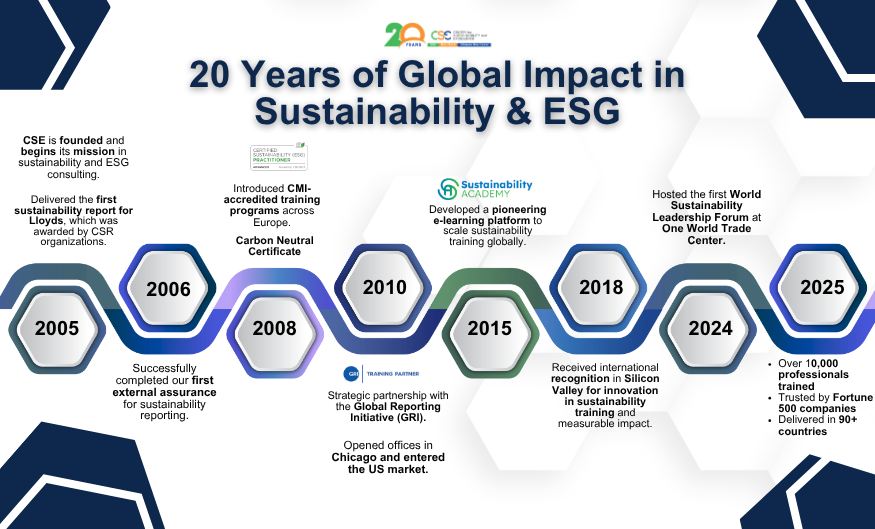

Homepage / Upcoming Certified Training Programs
Advanced certified education on ESG, Sustainability and Circular Economy for professionals who want to acquire cutting-edge knowledge, get a globally recognized certification and maximize their company’s impact. CSE’s programs are trusted by more than 10.000 Certified Sustainability Practitioners from over 90 countries all over the world.

March 12-13 & 16 (Live Sessions)
North America
Filter by:

test description
Does your team need more focused training on concepts related to Corporate Social Responsibility, ESG, Smart Sustainability Strategies, Circular Economy and Net Zero?
CSE provides tailor-made group workshops to introduce Executive Board Members and Directors to the business case of Sustainability and its benefits for their stakeholders.
Address your organization’s specific requirements according to your sector and create a common understanding and internal alignment.

For certified online courses (self-paced recorded) specialized in different areas of Sustainability (ESG) explore our Sustainability Academy.




Our Sustainability (ESG) Practitioners talk about their experience!






You will have to successfully submit your assignment within 3 weeks.
Yes, you can still earn the relevant certificate from the online course.
If you fail the Certified ESG Practitioner assignment, you may resubmit it after 3 months with an additional fee.
You may start the Online Course anytime; however, we strongly suggest getting started after the completion of the three-day live course and/or the submission of the assignment.
The course has a 90-day timeframe (from the first day of the Certified Sustainability ESG Practitioner Course).
You need to show us the reason and we could provide you with a short extension (5-7 days). For more than 7 days, an additional fee is required.
You can take the final quiz twice.
You can repeat the certification process three months afterward with an additional fee of $350.
About two weeks after you submit your assignment, you will get your first Certification (Certified Sustainability ESG Practitioner) and the respective Seal (under the condition that your Assignment submission is successful).
Once you complete the certified online course, along with the final quiz and assignment, you will receive your second Certification and a badge.
| Cookie | Duration | Description |
|---|---|---|
| cookielawinfo-checkbox-analytics | 11 months | This cookie is set by GDPR Cookie Consent plugin. The cookie is used to store the user consent for the cookies in the category "Analytics". |
| cookielawinfo-checkbox-functional | 11 months | The cookie is set by GDPR cookie consent to record the user consent for the cookies in the category "Functional". |
| cookielawinfo-checkbox-necessary | 11 months | This cookie is set by GDPR Cookie Consent plugin. The cookies is used to store the user consent for the cookies in the category "Necessary". |
| cookielawinfo-checkbox-others | 11 months | This cookie is set by GDPR Cookie Consent plugin. The cookie is used to store the user consent for the cookies in the category "Other. |
| cookielawinfo-checkbox-performance | 11 months | This cookie is set by GDPR Cookie Consent plugin. The cookie is used to store the user consent for the cookies in the category "Performance". |
| viewed_cookie_policy | 11 months | The cookie is set by the GDPR Cookie Consent plugin and is used to store whether or not user has consented to the use of cookies. It does not store any personal data. |